Keywords: Gas
There are more than 200 results, only the first 200 are displayed here.
-
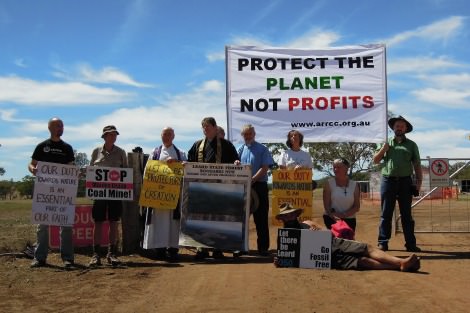
AUSTRALIA
- Fatima Measham
- 18 February 2016
5 Comments
The formative experiences of Australian early boomers include unprecedented access to university education and health care, immersion in feminist discourse, Aboriginal land rights campaigns, environmental activism, LGBT movements and pacifism. Quite remarkably, it mirrors some of the elements that engage millennials. While in some ways anti-boomer sentiment seems well placed, what it misses is that on social issues a 21-year-old might have more in common with a 61-year-old than a 71-year-old.
READ MORE 
-
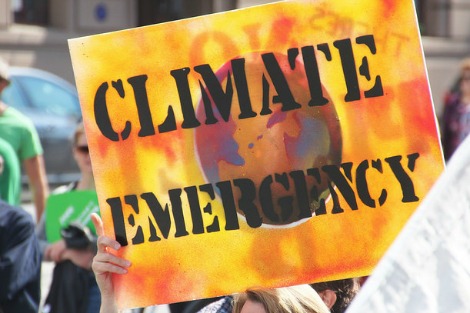
ENVIRONMENT
- Lyn Bender
- 09 February 2016
11 Comments
News about climate change can be depressing. But it was downright shocking to learn that budget cuts to CSIRO have led to the decimation of the agency's climate science. Australia is one of the worst global emitters, yet Australian citizens have outsourced responsibility for climate protection, as they have for refugees. The ease of bipartisan agreement on such crucial dilemmas confirms the point. A dormant electorate creates a negligent, sleeping, self-satisfied and corrupt government.
READ MORE 
-
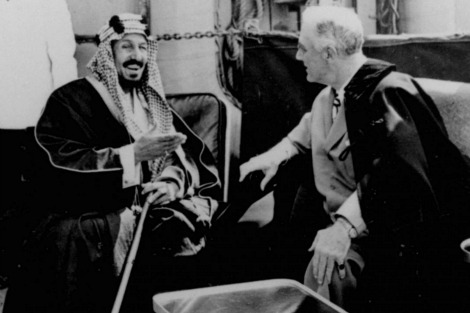
ECONOMICS
- David James
- 15 December 2015
3 Comments
In the early 1990s, America, Europe and Japan accounted for about 90 per cent of world GDP. Now, they account for less than half. The BRICs and other developing nations have grown steadily (in China's case spectacularly) while Europe has stagnated and America has sputtered at best. Recent developments in the geopolitics of fossil fuels and in finance confirm the perception that the rise of China and the developing world spells the end of US global hegemony. Against this backdrop, the narrative of the West has grown increasingly incoherent.
READ MORE 
-

AUSTRALIA
- Andrew Hamilton
- 09 December 2015
11 Comments
Although they can be inconvenient, human rights matter. It is important for nations to recognise them and for citizens to defend them. The survivors of the Second World War who had seen the gross violations of human rights under both Nazi and Communist regimes clearly saw this. These states regarded human rights as a privilege that they could give and take away as they chose. History spells out in the alphabet of gas chambers and gulags what that attitude meant for their subjects.
READ MORE 
-

ARTS AND CULTURE
- Grant Fraser, Ignatius Kim and Margaret Quigley
- 24 November 2015
5 Comments
Not seven steps from the familiar geography of her room her bewilderment sagged on her walking frame as she shied away from the stern arm that was guiding her ... We composed ourselves upon the couch long enough for her to plead 'But I don't know who you are' as she trembled beneath the insult of my peering eyes and frowned away; and I felt a stranger's smile curdling on my face.
READ MORE 
-

ENVIRONMENT
- Nicholas Low
- 04 November 2015
20 Comments
Environmental justice will be part of the discussion in Paris this month. The principle of justice says each person is of equal value no matter which nation or ethnic group they belong to. Each Australian contributes 16 tonnes of carbon dioxide per year, while each Bangladeshi contributes a little more than a third of a tonne. If the principle of justice is applied, Australia will have to move from 16 tonnes per person to about a third of a tonne, roughly equivalent to what a Bangladeshi emits now.
READ MORE 
-
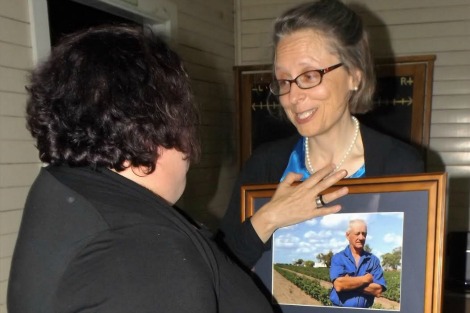
ENVIRONMENT
- Mark Copland
- 02 November 2015
10 Comments
When Chinchilla farmer George Bender took his own life, it ended a ten year struggle with the coal seam gas industry that has wreaked havoc on his property and that of his neighbours. Despite mountains of paper regulations, despite a well-resourced Gasfield Commission and Gasfield Compliance Unit, people in the region feel abandoned. It seems that government bodies are enablers and facilitators of the industry rather than regulators and protectors of the people, the soil and the water.
READ MORE 
-

AUSTRALIA
- Frank Brennan
- 23 October 2015
4 Comments
Francis knows there are all sorts of issues inside and outside the Church where for too long people with power have tried to keep the lid on, in the hope that the problems and complexities will go away, often by parodying those who see the problems or complexities as small 'l' liberals or cafeteria Catholics. He delights in being joyful and troubled while contemplating big problems, calling people of good will to the table of deliberation reminding them of the kernel of the Christian gospels. He has the faith and hope needed to lift the lid without fear and without knowing the answers prior to the dialogue occurring.
READ MORE
-

INTERNATIONAL
- Bronwyn Lay
- 28 September 2015
16 Comments
When refugees walked into Europe, away from distant distress sites, their presence made the global issue visceral for Europeans. Australia doesn't have asylum seekers walking en masse through ordinary streets. Our border is one of established hatred. 'Stop the boats' policy denies ordinary Australians their compassionate impulse, and creates a history that our children will face judgement upon. It denies humanity's collective memory after World War II.
READ MORE 
-

- Frank Brennan
- 26 August 2015
7 Comments
When addressing Italian doctors last November, Pope Francis quoted St. Camillus de Lellis who suggested that the most effective method in caring for the sick was simply to 'Put more heart into those hands.' Let's do something to change the market settings and political settings here in Australia to modify the behaviour of all Australians in the future, and let's attend to our own Franciscan interior ecological conversion with our care for the vulnerable.
READ MORE
-

- Frank Brennan
- 06 August 2015
3 Comments
Pope Francis is not the first pope to address a social encyclical to everyone. But in comparison with his predecessors, Francis has been more inclusive in the process of writing the encyclical and in the final content of the document. He quotes from 17 different conferences of Catholic bishops. He is at pains to indicate that he is collaborative and that he takes the principle of subsidiarity very seriously. Being the final redactor of the text, he has felt free to interpolate some very folksy advice from time to time. He has also taken the liberty of inserting some very blunt, evocative images of environmental and economic devastation.
READ MORE
-
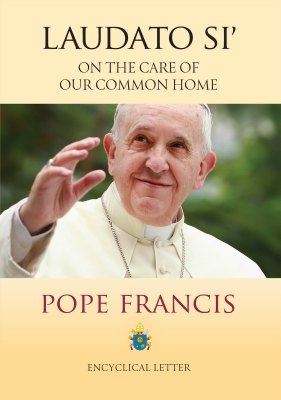
RELIGION
- Neil Ormerod
- 15 July 2015
29 Comments
It is not surprising that The Australian should be leading the local pushback on the environmental encyclical Laudato Si'. What is surprising is that a Catholic priest - Fr James Grant - should be joining the chorus against the encyclical, initially in an IPA media release. His more recent contribution to The Australian is right out of the briefing notes supplied by the coal industry in its global public relations efforts to shore up its waning reputation.
READ MORE 